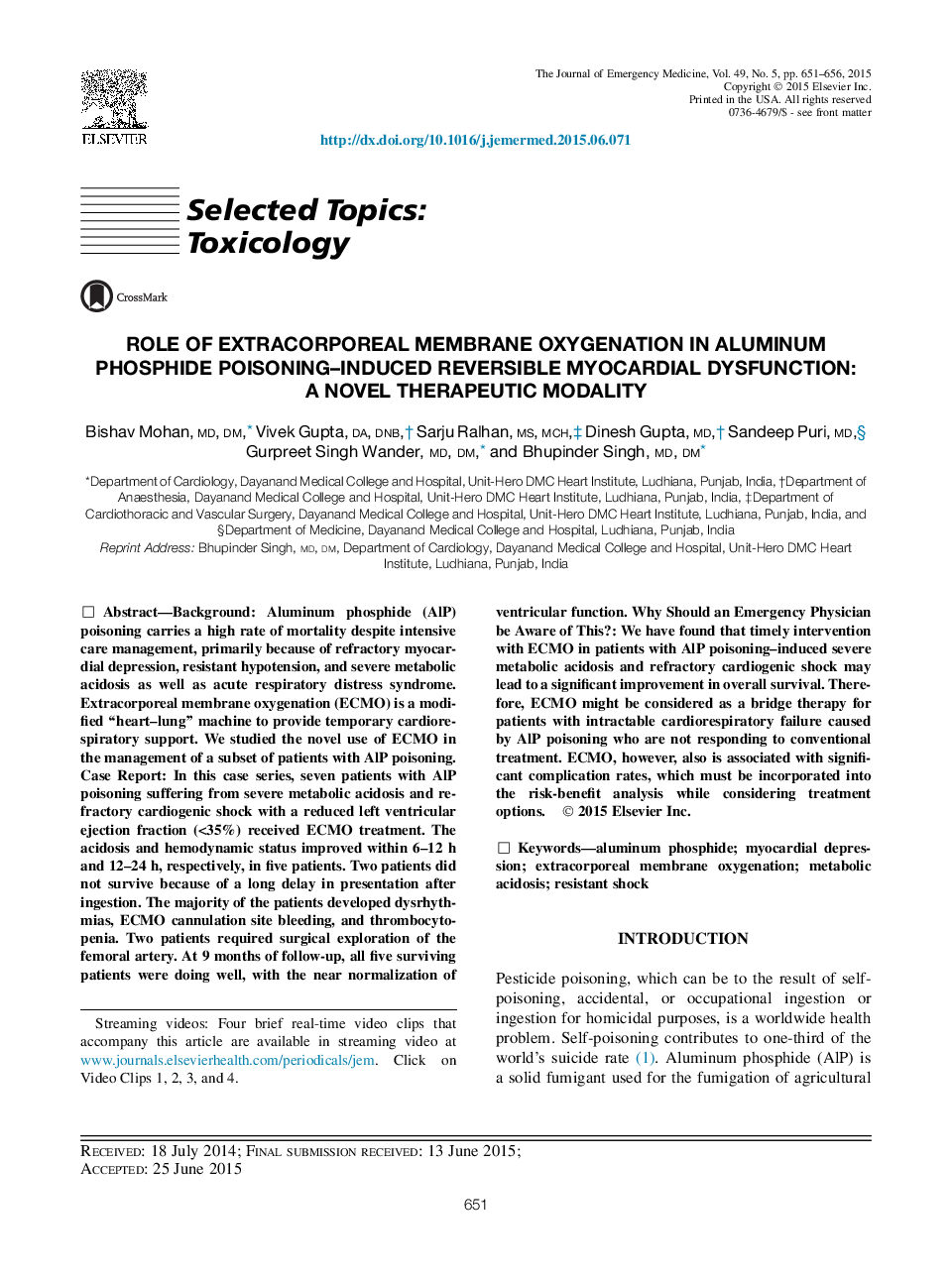| Article ID | Journal | Published Year | Pages | File Type |
|---|---|---|---|---|
| 6085186 | The Journal of Emergency Medicine | 2015 | 6 Pages |
BackgroundAluminum phosphide (AlP) poisoning carries a high rate of mortality despite intensive care management, primarily because of refractory myocardial depression, resistant hypotension, and severe metabolic acidosis as well as acute respiratory distress syndrome. Extracorporeal membrane oxygenation (ECMO) is a modified “heart-lung” machine to provide temporary cardiorespiratory support. We studied the novel use of ECMO in the management of a subset of patients with AlP poisoning.Case ReportIn this case series, seven patients with AlP poisoning suffering from severe metabolic acidosis and refractory cardiogenic shock with a reduced left ventricular ejection fraction (<35%) received ECMO treatment. The acidosis and hemodynamic status improved within 6-12Â h and 12-24Â h, respectively, in five patients. Two patients did not survive because of a long delay in presentation after ingestion. The majority of the patients developed dysrhythmias, ECMO cannulation site bleeding, and thrombocytopenia. Two patients required surgical exploration of the femoral artery. At 9Â months of follow-up, all five surviving patients were doing well, with the near normalization of ventricular function.Why Should an Emergency Physician be Aware of This?We have found that timely intervention with ECMO in patients with AlP poisoning-induced severe metabolic acidosis and refractory cardiogenic shock may lead to a significant improvement in overall survival. Therefore, ECMO might be considered as a bridge therapy for patients with intractable cardiorespiratory failure caused by AlP poisoning who are not responding to conventional treatment. ECMO, however, also is associated with significant complication rates, which must be incorporated into the risk-benefit analysis while considering treatment options.
